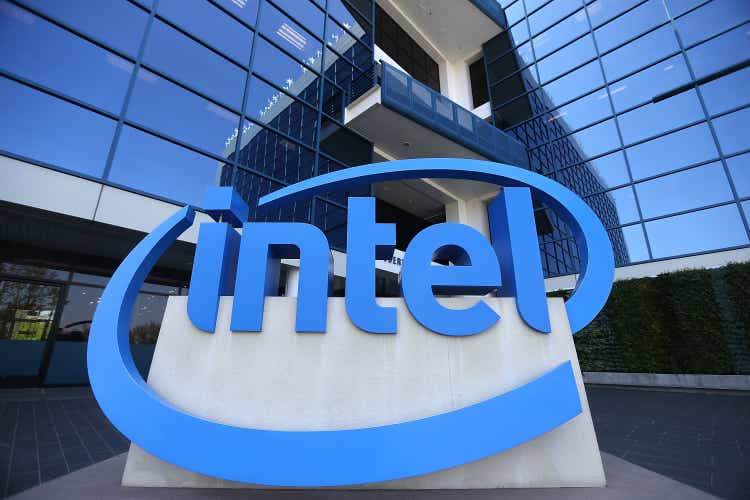
Justin Sullivan/Getty Images News
Intel’s (NASDAQ:INTC) contract manufacturing business has potentially seen a setback after tests with Broadcom (AVGO) failed, Reuters reported, citing people with knowledge of the matter.
Broadcom’s tests involved sending silicon wafers through Intel’s advanced manufacturing process called 18A. Last month, after Broadcom received the wafers back from Intel and evaluated the results, Broadcom found that the manufacturing process was not yet viable to move to high-volume production, the report added.
The current relationship between the two companies could not be determined, or if Broadcom had decided to leave the potential manufacturing deal, the report noted.
“There is a great deal of interest in Intel 18A across the industry but, as a matter of policy, we do not comment on specific customer conversations,” said an Intel spokesperson, as per the report.
Meanwhile, Broadcom noted that it is “evaluating the product and service offerings of Intel Foundry and have not concluded that evaluation,” said a Broadcom spokesperson.
Broadcom’s engineers had concerns with the viability of Intel’s process. Usually, this refers to the number of defects on each wafer or the quality of the chips fabricated, according to the report.
For an advanced manufacturing process used by Taiwan Semiconductor Manufacturing (TSM), the Taiwanese company charges about $23,000 per wafer at high volume, the report added, citing people with knowledge of wafer pricing.
The news agency could not determine Intel’s wafer pricing and TSM declined to comment on its pricing mechanism, the report noted.
Intel launched its contract manufacturing business in 2021 as a vital part of CEO Pat Gelsinger’s turnaround strategy. The company had released its manufacturing tool kit for the 18A process to other chip manufacturers over the summer, Gelsinger had said on an earnings call last month.
Intel intends to be “manufacturing-ready” by the end of this year for its own chips and start high volume manufacturing for external customers in 2025, Gelsinger noted. At an investor conference last week, Gelsinger said several customers were “actively engaged” with the tool kit, the report added.
Later this month, Gelsinger and some other key executives are expected to table a plan to the board to cut unnecessary businesses and curtail capital spending. The news came a couple of days after, Intel (INTC) was said to be exploring options, such as splitting its foundry business and potentially scrapping factory projects, as the troubled company struggles to turn around its business amid mounting losses.
